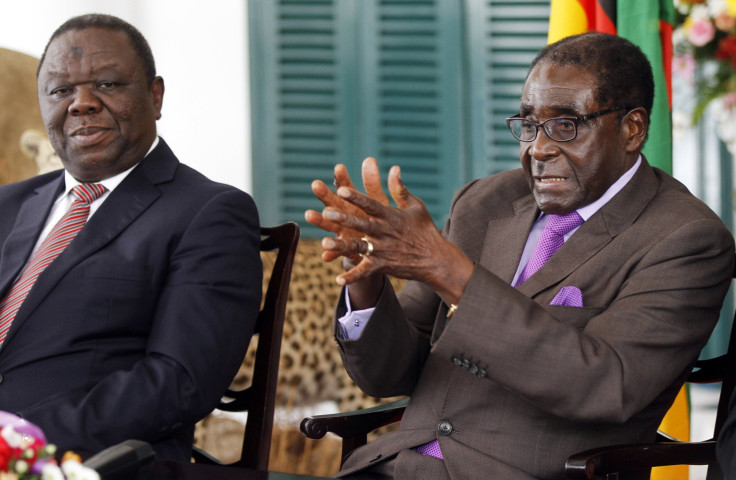'Team of Rivals': Uneasy Zimbabwe Coalition Government Nearing End Ahead Of Summer Elections

The contentious power-sharing arrangement between Zimbabwe’s President Robert Mugabe and Prime Minister Morgan Tsvangirai is set to end with elections expected as early as July.
On Saturday, Zimbabweans voted overwhelmingly to approve a new constitution in a referendum backed by both Mugabe’s and Tsvangirai’s political parties.
The new constitution imposes presidential term limits to two five-year terms, but won't be applied retroactively to Mugabe, who has been in power for 33 years.
“This is a new political dispensation and I hope it brings in a new political culture -- from the culture of impunity to the culture of constitutionalism,” Tsvangirai said after casting his vote in the referendum, the Standard reported.
No date has been set for the elections, but the earliest possible vote would have to be held in July, according to the BBC.
Mugabe, 89, and Tsvangirai, 61, have run a coalition government since 2009 after disputed elections that were fraught with inconsistencies and marred by violence and voter intimidation at the hands of the Zimbabwean security forces, whose leadership has largely backed Mugabe.
Mugabe’s party, the Zimbabwe African National Union – Patriotic Front, or Zanu-PF, holds a majority in the Senate while Tsvangirai’s party, the Movement for Democratic Change, or MDC, holds a majority in the legislature’s lower chamber, the House of Assembly.
As the two parties prepare to face off in the elections, reports of politically-motivated violence and intimidation of MDC members and other opposition groups have begun to surface.
International advocacy group Human Rights Watch has spoken out recently on what it says is increasing police aggression in crackdowns on public demonstrations.
“Police harassment and arrests of civil society activists has worsened as elections get closer,” said Tiseke Kasambala, Africa advocacy director at Human Rights Watch, in a statement. “The government needs to stop this police abuse of power and hold those responsible to account.”
The group alleges that police are engaging in a “campaign of politically-motivated abuses” against critics of Mugabe and the Zanu-PF party.
On Sunday, human rights lawyer Beatrice Mtetwa was arrested on an obstruction of justice charge after she offered to represent four employees of the prime minister’s office, who've been accused of impersonating police officers.
“Zimbabwe’s authorities cannot expect to create a rights-respecting environment ahead of elections in the context of repression, harassment, and intimidation of civil society activists,” Kasambala added.
© Copyright IBTimes 2024. All rights reserved.




















